
Support After a Hurricane or Other Emergency
In the most challenging times, there's still a lot you can do to comfort and protect children.
Hurricanes, storms, and other natural disasters can be difficult for young children who may not fully understand what’s going on around them. These tips, activities, and videos can help them feel safe, cope with emotions, and understand that there is hope for the future.
Give Children the Facts
Children might still be confused about what exactly a hurricane is. Explain that it’s a big storm with a lot of wind and heavy rain. It can be scary, but adults will do their best to keep children safe.
Comfort Your Children
Try to calm your own fears first, since children take your cues. Answer questions honestly and age-appropriately, in simple words. Reassure them that what happened is not their fault, and that you love them and will take care of them. Hugs help, too!
Listen and Talk to Your Children
Follow your children’s lead. They may not want to talk about their emotions and experiences right away. If they prefer not to talk, play with them and spend time doing what they like to do. If they express sadness, anger, or fear, tell them it’s okay to feel this way, and encourage them to continue sharing their feelings with words or pictures.
Try to Keep a Normal Routine
As much as possible, try to keep a daily routine. To help children feel calm and safe, encourage them to engage in favorite activities.
Spend Time With Your Children
Simply smiling, laughing, and playing together can also help children feel safe. Encourage them to do things that can help them express their emotions, such as writing a story or drawing a picture.
Pay Attention to Signs of Stress
Nightmares, bed-wetting, aggression, and clinging behavior are common among children who have experienced a crisis. If you notice such signs, please talk to a health care provider, teacher, school counselor, or mental health professional.
Monitor Media Use
Avoid having your child watch or see repeated images of troubling events, such as a natural disaster and its damage. Young children might think that the event is happening over and over, in real time.
Empower Your Children
If your children have been directly affected by the hurricane, you can give them simple chores and responsibilities to help them maintain a sense of control. Praise their efforts—building self-confidence is important when joining a new community. If children have been indirectly affected, encourage them to show compassion and help others.
Take Care of Yourself
You’re more helpful to your children when you’ve attended to your own physical and emotional needs. Build a support system through relatives, friends, faith leaders, or counselors. Stay active, get enough rest, eat healthfully, and do things you enjoy.
Inspire a Sense of Hope
Explain that while many things may have changed, there are people and places we can always “hold in our hearts.” Explain that no matter what has happened, you still have each other to build a better future.
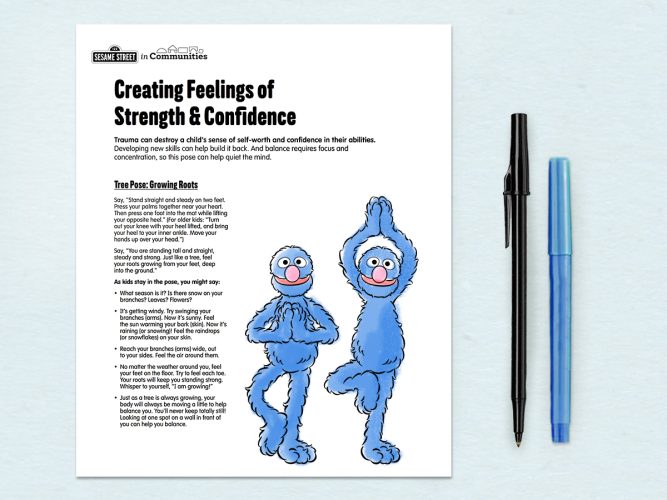
Creating Feelings of Strength and Confidence
A focused movement activity that builds confidence and a sense of groundedness.

Here for Each Other Family Guide: Wildfires
This family guide has tips and activities that offer comfort and reassurance before, during, or after a wildfire.
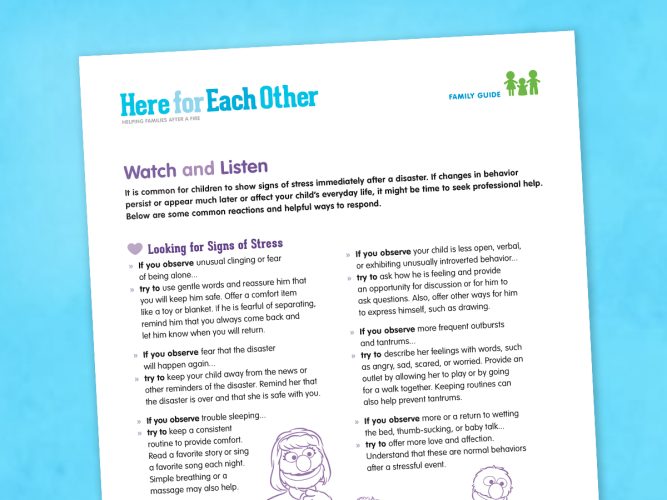
Here for Each Other Family Guide: Fires
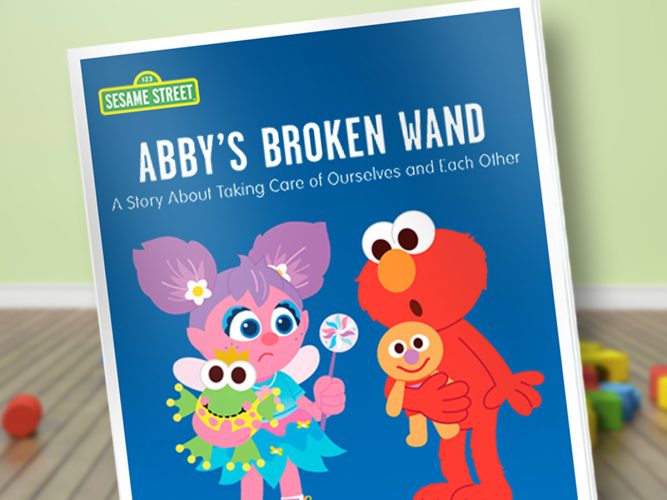
Abby's Broken Wand
A storybook featuring strategies to help children cope with big feelings.
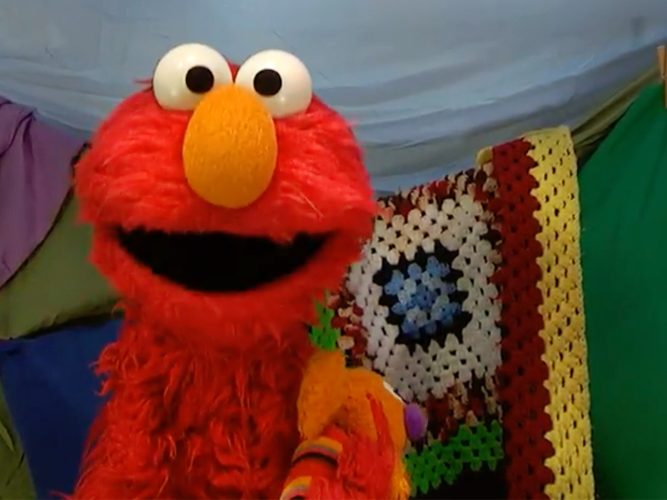
Feeling Safe
In order for healing to begin, it’s critical that kids feel protected and safe.

It’s Not Easy Being Green
A song about being ourselves.
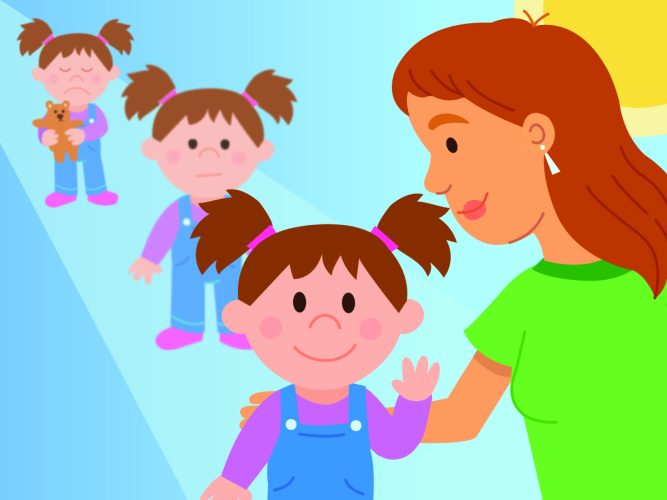
Helping Children Make Meaning After Trauma with Chandra Ghosh Ippen
Learn how young children experience trauma and what can help with Sesame Workshop’s Tara Wright, and clinical psychologist and author Chandra Ghosh Ippen.
